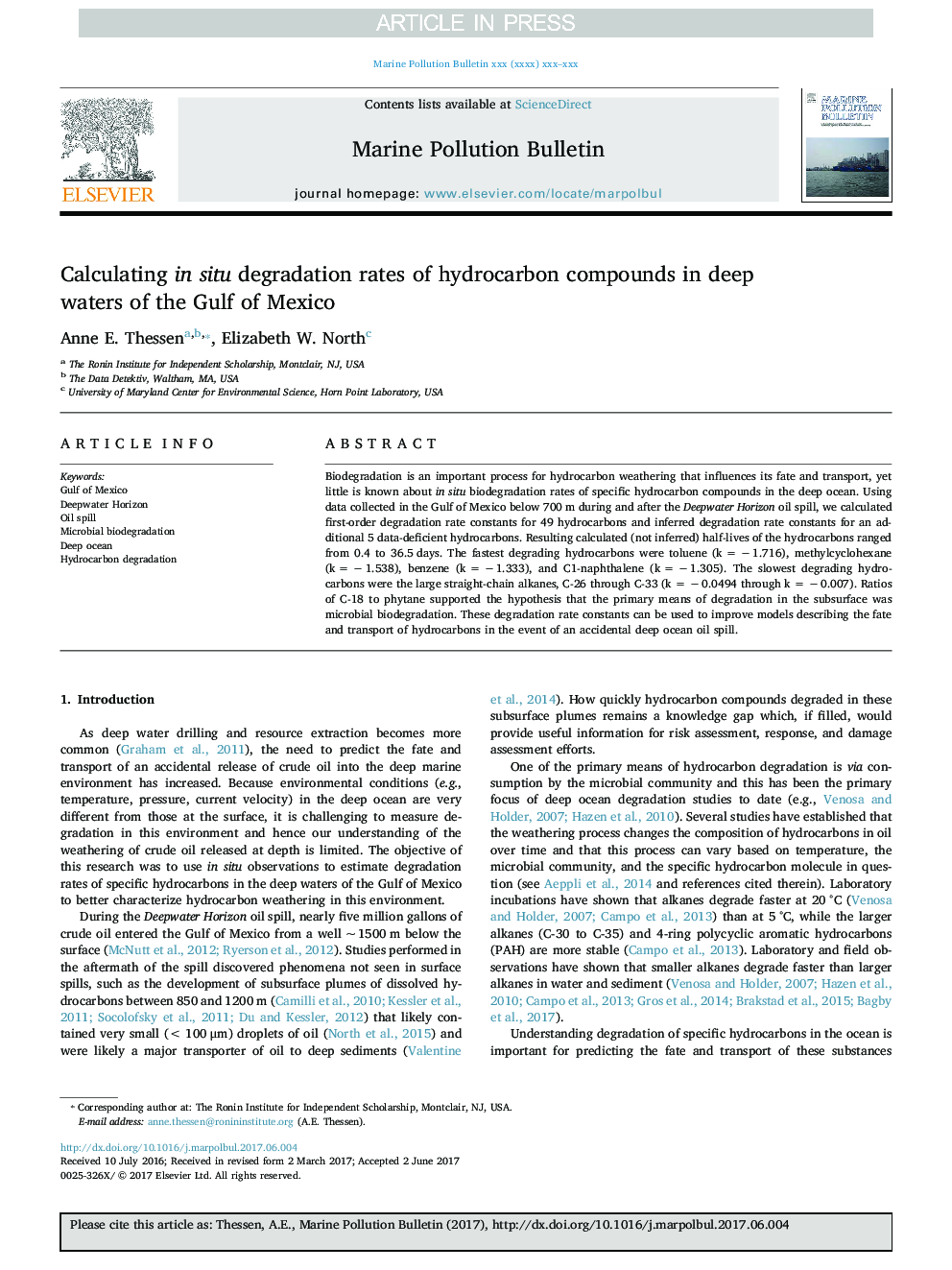| کد مقاله | کد نشریه | سال انتشار | مقاله انگلیسی | نسخه تمام متن |
|---|---|---|---|---|
| 5757235 | 1622715 | 2017 | 8 صفحه PDF | دانلود رایگان |
عنوان انگلیسی مقاله ISI
Calculating in situ degradation rates of hydrocarbon compounds in deep waters of the Gulf of Mexico
ترجمه فارسی عنوان
محاسبه میزان تخریب موجود در محل ترکیبات هیدروکربن در آب های عمیق خلیج مکزیک
دانلود مقاله + سفارش ترجمه
دانلود مقاله ISI انگلیسی
رایگان برای ایرانیان
کلمات کلیدی
خلیج مکزیک، افق عمیق آب، نشت نفت، تجزیه زیستی میکروبی، اقیانوس عمیق، تخریب هیدروکربن،
موضوعات مرتبط
مهندسی و علوم پایه
علوم زمین و سیارات
اقیانوس شناسی
چکیده انگلیسی
Biodegradation is an important process for hydrocarbon weathering that influences its fate and transport, yet little is known about in situ biodegradation rates of specific hydrocarbon compounds in the deep ocean. Using data collected in the Gulf of Mexico below 700 m during and after the Deepwater Horizon oil spill, we calculated first-order degradation rate constants for 49 hydrocarbons and inferred degradation rate constants for an additional 5 data-deficient hydrocarbons. Resulting calculated (not inferred) half-lives of the hydrocarbons ranged from 0.4 to 36.5 days. The fastest degrading hydrocarbons were toluene (k = â 1.716), methylcyclohexane (k = â 1.538), benzene (k = â 1.333), and C1-naphthalene (k = â 1.305). The slowest degrading hydrocarbons were the large straight-chain alkanes, C-26 through C-33 (k = â 0.0494 through k = â 0.007). Ratios of C-18 to phytane supported the hypothesis that the primary means of degradation in the subsurface was microbial biodegradation. These degradation rate constants can be used to improve models describing the fate and transport of hydrocarbons in the event of an accidental deep ocean oil spill.
ناشر
Database: Elsevier - ScienceDirect (ساینس دایرکت)
Journal: Marine Pollution Bulletin - Volume 122, Issues 1â2, 15 September 2017, Pages 77-84
Journal: Marine Pollution Bulletin - Volume 122, Issues 1â2, 15 September 2017, Pages 77-84
نویسندگان
Anne E. Thessen, Elizabeth W. North,
